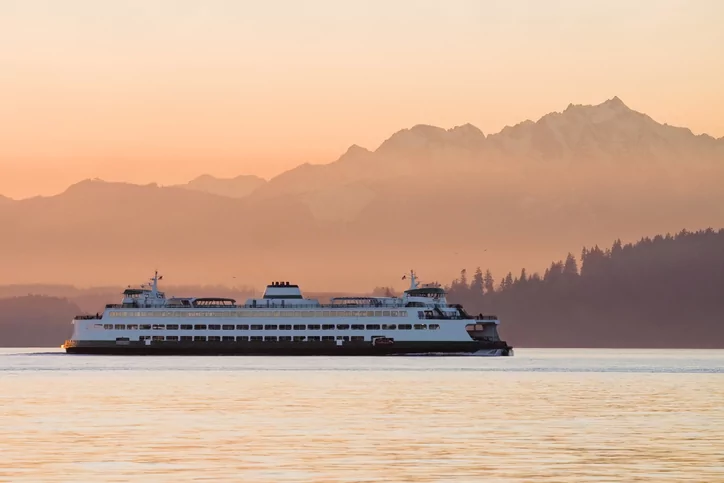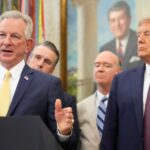

(The Center Square) – Hundreds of Washington state ferry workers are calling for higher pay and better staffing.
The Marine Engineer Beneficial Association, or MEBA, is the union that represents engine room employees. MEBA contends other deck-level ferry worker unions have been given bigger raises in the last year.
The union argues below-deck workers are equally critical to the system and deserve better pay, insisting on raises of up to 20%.
MEBA is currently bargaining with the state Office of Financial Management, which according to an OFM email sent to The Center Square, is also bargaining with, “approximately 30 other groups of represented state workers.”
The email goes on to say, “Because bargaining is ongoing, we are not able to comment on specifics, but we continue to have confidence in the bargaining process and that we will come to a successful resolution with the parties.”
Any tentative ferry agreement will be submitted to the OFM director by Oct. 1. The OFM director will then determine if the agreements are financially feasible for the contract that would take effect July 1, 2025.
Rep. Andrew Barkis, R-Centralia, is the ranking minority on the House Transportation Committee.
Below-deck jobs are critical, he told The Center Square.
“Those who are keeping the ships afloat should be compensated fairly,” Barkis said. “I don’t know exactly what that number is.”
He went on to note, “We have a talented workforce now with institutional knowledge that will be very difficult to replace if they leave.”
Barkis recalled a recent meeting with a longtime employee at Eagle Harbor who works in the engine room.
“He knew every nut and bolt, and I was thinking when this guy leaves, who is going to replace him?” Barkis asked.
Such valuable employees need to be kept on the job.
“Part of that retention, like we’ve done with State Patrol, is compensation,” Barkis said.
“If we have to put more money into labor costs for the ferries, we’ll have to find that money somewhere,” he continued. “It could put other projects in jeopardy, because there just isn’t the revenue to do it all.”
Gov. Jay Inslee’s push for hybrid-electric ferries at a time when other boats are out of service has only made things worse, according to Barkis.
Washington State Department of Transportation Assistant Secretary for State Ferries Steve Nevey pushed back on that assertion during a recent media availability event.
“We share the public’s urgency in bringing these vessels on board as quickly as possible,” Nevey noted. “We can receive two vessels in 2028, two in 2029 and the final of these five vessels in 2030.”
State Sen. Marco Liias, D-Edmonds, chairs the Senate Transportation Committee.
“This is a testament to the real power of the Climate Commitment Act,” Liias said. “Because of the CCA [Climate Commitment Act], our ferries are fare free for youth, and in just a few years they won’t just be fare free but climate neutral as well.”
Complicating the equation is the fact voters may repeal the CCA via an initiative on the Nov. 5 ballot.
Also complicating matters: staffing shortages.
The ferry system lost hundreds of employees during the pandemic, with many taking early retirement, quitting or being let go over the COVID-19 vaccine mandate.
Ferry service has been delayed or canceled due to lack of staff and continued maintenance issues.
The winter 2024 Ferry Rider Opinion Group survey found 70% of riders on the Fauntleroy/Vashon route expressing that they are either somewhat or extremely dissatisfied with service.
CLICK HERE TO READ MORE FROM THE WASHINGTON EXAMINER
62% of riders on the Southworth/Vashon route voiced the same dissatisfaction.
“At the end of the day we must retain the valuable workforce that we have, and we’re going to have to figure that out because the alternative is far worse,” Barkis said.






